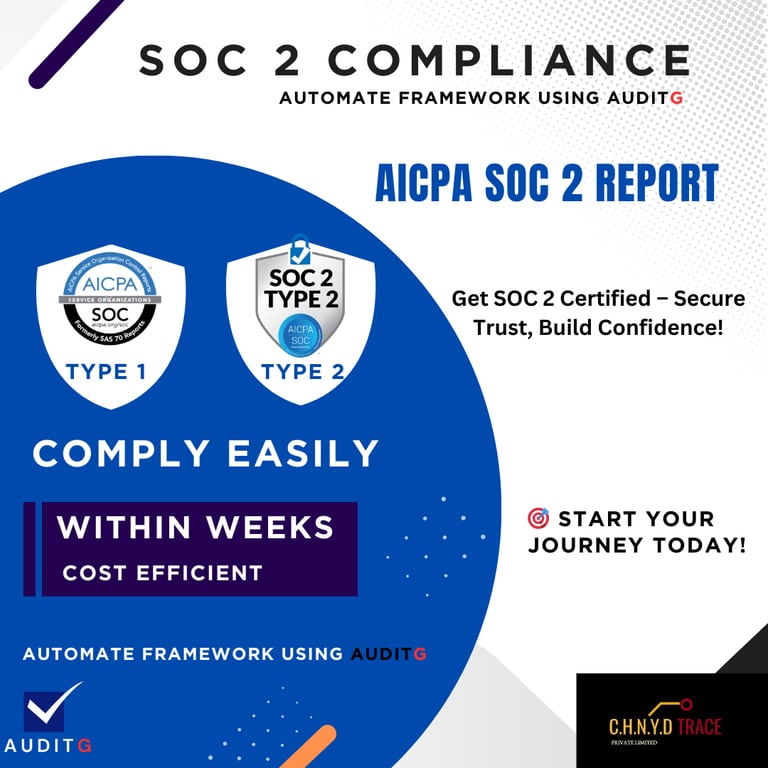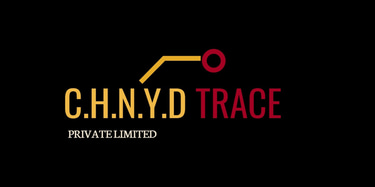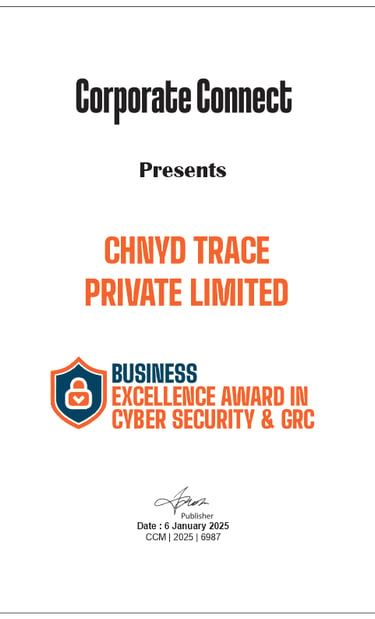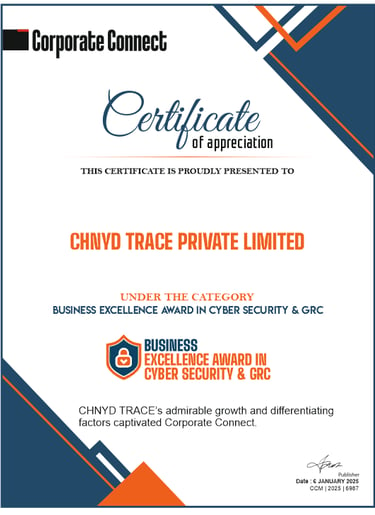soc certification cost
SOC Certification Cost: Evaluating the Investment for Long-Term Security
9/18/20245 min read
Understanding SOC Certification
SOC (System and Organization Controls) certification represents a pivotal framework designed to evaluate and ensure the internal controls of organizations, particularly those that provide services to clients. This certification is essential for companies aiming to demonstrate their commitment to managing customer data securely and to uphold high standards of service. SOC certification is categorized into three primary types: SOC 1, SOC 2, and SOC 3, each serving specific purposes that cater to different industries and client needs.
SOC 1 specifically addresses the internal controls relevant to financial reporting, making it particularly significant for organizations in sectors such as finance and accounting. Conversely, SOC 2 and SOC 3 reports focus on the operational controls related to system security, availability, processing integrity, confidentiality, and privacy. These reports are invaluable for technology service providers, cloud service companies, and any organization that handles sensitive customer information, as they provide assurance regarding the management of customer data.
The relevance of SOC certification extends beyond compliance; it enhances a company’s credibility within its industry. Achieving SOC certification can significantly improve service delivery by identifying and mitigating risks associated with data management. Furthermore, it plays a crucial role in fostering customer trust. Clients are increasingly seeking reassurance regarding the integrity and security of their data, and SOC audits serve as a reliable measure of an organization’s commitment to safeguarding sensitive information.
In today’s regulatory environment, organizations are often required to obtain SOC certifications to meet compliance obligations. Failure to achieve such certifications may lead to loss of business opportunities as customers prioritize security compliance when selecting service providers. Consequently, investing in SOC certification not only meets regulatory demands but also plays a critical role in competitive positioning and cultivating long-term business relationships.
Breaking Down the Costs of SOC Certification
Obtaining SOC certification entails a mix of direct and indirect costs that businesses need to account for in their financial planning. One of the most significant expenses associated with SOC certification is the fees charged by third-party auditors. These costs can vary depending on the size of the organization and the complexity of its systems, typically ranging from a few thousand to tens of thousands of dollars. This vital audit process assesses the controls and practices in place, forming the foundation for achieving certification.
Additionally, businesses must allocate resources internally to prepare for the audit. This includes dedicating staff time, training personnel on compliance standards, and possibly even hiring additional employees with specific expertise in information security. The investment in internal resources can be considerable, as effective preparation ensures that the organization meets all necessary requirements to successfully pass the audit.
Moreover, organizations often need to implement various security measures and practices to align with SOC requirements. This may involve upgrading existing security infrastructure, purchasing new technologies, and developing robust procedures for monitoring and incident response. These initial setup costs can be significant but are critical for establishing long-term security and compliance within the organization.
Finally, it is essential to consider the annual renewal costs associated with maintaining SOC certification. This typically involves ongoing audits, updates to security protocols, and continuous training for employees. While these costs may seem like an ongoing burden, they play a crucial role in reinforcing an organization's commitment to security, ultimately providing reassurance to clients and stakeholders.
In evaluating the total investment for SOC certification, businesses should weigh these upfront and recurring costs against the long-term benefits of enhanced security posture, increased trust from clients, and potential market advantages. Understanding these financial aspects is imperative for strategic decision-making regarding SOC compliance.
Evaluating the Long-Term Benefits of SOC Certification
Obtaining SOC (System and Organization Controls) certification presents numerous long-term benefits that can profoundly enhance an organization's operational framework. First and foremost, achieving SOC certification signifies a commitment to maintaining rigorous security controls. This enhanced security posture not only protects sensitive data but also mitigates risks associated with data breaches. By establishing robust security measures, companies can potentially avert costly incidents, thereby contributing to a significant long-term return on investment.
In addition to improved security, SOC certification plays a crucial role in boosting customer confidence. Today’s consumers and clients are increasingly concerned about how companies handle their data. By obtaining SOC certification, organizations send a clear message that they adhere to recognized industry standards for transparency and security. This trust translates to a competitive advantage, enabling companies to stand out in a crowded marketplace. For instance, organizations that undergo the SOC audit process may attract more clients who prioritize data protection, thereby securing new business opportunities.
Furthermore, the certification process often uncovers inefficiencies within an organization's existing controls and procedures, prompting necessary improvements. This can lead to operational cost savings in the long run as organizations streamline their processes and reduce the potential costs associated with non-compliance or security failures. A real-world example includes a mid-sized financial firm that, after obtaining SOC 2 certification, reported a 30% reduction in operational costs related to compliance activities, as well as a notable increase in client contracts.
In conclusion, while the initial cost of obtaining SOC certification may seem significant, the long-term benefits—enhanced security, increased customer trust, a competitive edge, and potential savings—make it a worthwhile investment for organizations committed to improving their overall performance and securing their operational environment.
Making the Decision: Is SOC Certification Worth the Investment?
For businesses contemplating SOC (System and Organization Controls) certification, a thorough assessment of the associated costs and benefits is essential. This process begins by identifying the specific motivations behind pursuing certification. Companies seeking to enhance their security posture, comply with industry regulations, or improve customer confidence must examine how SOC certification aligns with these objectives. By defining clear goals, organizations can better evaluate whether the investment in certification is justified.
One crucial aspect to consider is creating a budget for the certification process. Organizations should list all potential expenses, including audit fees, consultant costs, internal resource allocation, and ongoing compliance efforts. By understanding the full financial landscape, businesses can make more informed decisions. It is also advisable to project potential benefits, such as increased business from clients who prioritize data security, which can help offset certification costs.
Engaging with consultants who specialize in SOC certification can provide valuable insights and guidance throughout the process. These professionals bring wealth of experience and can assist in understanding the requirements, preparing for audits, and implementing best practices. They can also highlight areas of improvement in existing security measures, thereby enhancing the overall risk management strategy of the organization.
In weighing the pros and cons, companies should consider not only the financial investment but also the long-term advantages of SOC certification. While the initial costs may seem significant, the potential for improved client trust, operational efficiency, and regulatory compliance often outweighs the expenditure. Moreover, achieving SOC certification can serve as a competitive differentiator in industries prioritizing information security.
In conclusion, businesses should approach SOC certification not merely as an expense but as an essential investment in their long-term security and sustainability strategy. By carefully evaluating their goals, budgeting effectively, and seeking expert assistance, organizations can make informed decisions that contribute to their overall growth and security posture.
Contact Us for SOC 2
Reach out for SOC 2 Type 2 certification inquiries and AICPA attestation details. We're here to assist you with your compliance needs.








